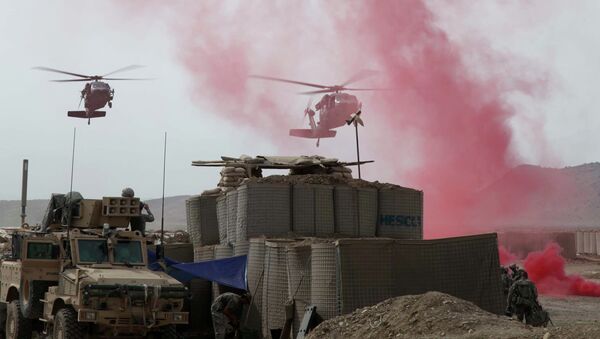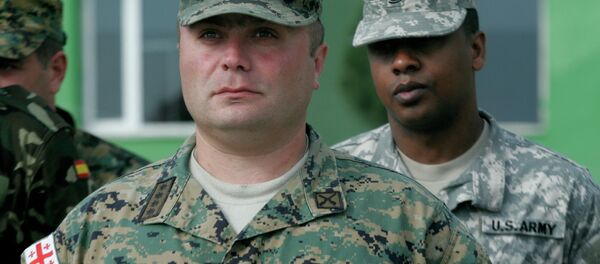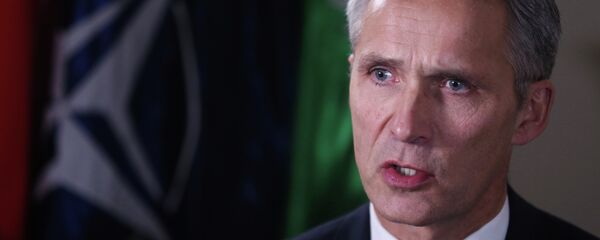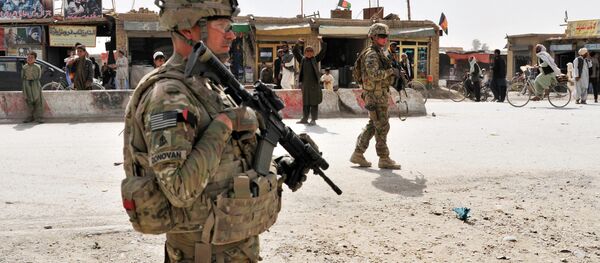"I believe the continued presence and/or additional numbers of foreign advisors and troops in Afghanistan will contribute to the fragmentation and destabilization of the country," a renowned Pakistani writer, Mohammed Hanif, longlisted for the 2008 Man Booker Prize told Sputnik.
NATO's new mission in Afghanistan will consist of 12,000 personnel, drawn from NATO's 28 member states. The Resolute Support mission is a follow-on to the International Security Assistance Force (ISAF) mission, which will cease at the end of 2014. According to NATO Secretary General Jens Stoltenberg, the alliance will contribute to financing Afghan security forces, while Afghanistan's President Ashraf Ghani pledged that the funding would be handled efficiently and transparently.
"The last thing that NATO needs is a new mission anywhere in the world, but not content with having destroyed Libya and presenting a belligerent attitude to Russia in Eastern Europe, NATO has decided to maintain a very expensive 12,000 troop presence in Afghanistan where it has suffered severe military and political setbacks over the past decade," Brian Cloughley, a former Australian defense attache to Islamabad told Sputnik.
"NATO has failed completely in Afghanistan, and nothing it can do there, now, will cancel that failure," Cloughley asserted.
David Edwards, director of the Williams College's Afghan Media Project is also skeptical about continued US involvement in Afghanistan.
"The historical measure of good to bad has yet to be taken, but my own feeling is that overall we have brought about more harm than help to the country, often despite good intentions and honest attempts at assisting Afghanistan rebuild," Edwards told Sputnik.
However, Edwards pointed out that keeping 12,000 troops in Afghanistan is automatically a bad idea, as pulling out all of the troops could be "as irresponsible now as placing too many troops into combat roles was irresponsible a decade ago."
Edwards stressed also that President Ghani could be trusted and if he, who is "highly critical of past US mistakes.. says that the troops are needed at this point in time," then the troops are truly needed.
In September, Afghanistan signed a long-term security agreement with the United States and NATO, authorizing the presence of 9,800 American and at least 2,000 NATO troops in the country after the end of 2014.
At the same time, the number of Western troops will be assessed not only in the context of Afghanistan but also in that of Iraq. The United Kingdom is also preparing to send "hundreds of British troops" to Iraq to help the country fight against the Islamic State (IS).
"What we are going to do is to help the new government of Iraq and its own army take the fight to ISIL [IS] through the aircraft we have deployed in the sky, through intelligence gathering, and through specialist training," Britain's defense secretary Michael Fallon stated.
"Britain's intention to commit troops to Iraq in a non-combat role is yet another example of scratching at the edges of a mammoth military problem," Cloughley said. "These efforts will do very little to combat the Islamic State terrorists while will assuredly have a most adverse effect on international (non-NATO) opinion as regards British involvement in matters that do not concern it."
Mohammed Hanif concluded that an increase in British or any other international troops in the Arab world to combat the Islamic State or for any other reason "will certainly exacerbate the deteriorating situation in Afghanistan."




